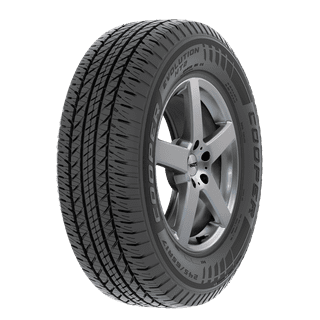Trusted Tire Shop Morris: Comprehensive Tire Solutions and Exceptional Service
Trusted Tire Shop Morris: Comprehensive Tire Solutions and Exceptional Service
Blog Article
Tire Solution: The Effect of Weather
When it pertains to making certain ideal efficiency and safety when driving, understanding the influence of weather condition problems on tire service is vital. From scorching heat to icy roadways, each weather aspect can dramatically influence tire performance and general driving experience. By diving right into the effects of varying climate problems on tires, motorists can get valuable understandings that might improve their car's efficiency and durability. In this conversation, we will check out the complex partnership between climate conditions and tire service, clarifying the significance of weather-specific tire upkeep practices and considerations.
Warmth and Tire Efficiency
When revealed to high temperatures, tires experience changes in efficiency that can considerably impact lorry security and handling. The heat produced from prolonged driving or hot climate problems causes the tire rubber to soften, leading to minimized walk life and increased wear.
In addition, high temperatures can accelerate the process of tire aging, triggering the rubber to wear away more rapidly. To minimize the effects of heat on tire performance, motorists must frequently inspect their tire stress, revolve tires to make certain also wear, and examine for any type of indications of damage.
Cold Weather Condition Impacts
Cold weather conditions can have a substantial impact on tire performance and safety and security. In cool weather condition, tires may also lose air pressure extra quickly, which can impact dealing with and fuel efficiency.
To mitigate the results of winter on tires, it is essential to on a regular basis inspect tire stress and inflate them to the maker's suggested levels. Making use of wintertime or all-season tires developed for cold climate conditions can also boost traction and grasp on icy or snowy roads - tires morris il. Correct tire maintenance, including routine inspections for wear and damages, comes to be much more critical throughout colder months to guarantee ideal performance and safety and security
Rainy Conditions Effect
During rainy conditions, tire efficiency and safety and security can be considerably influenced by the damp road surfaces and reduced presence. The tread pattern of tires plays a critical function in maintaining grip on damp roads. Tires with worn-out treads are extra susceptible to hydroplaning, where a layer of water develops between the tire and the road surface area, bring about loss of grip. To fight this, motorists ought to on a regular basis check their tires for ample walk depth and consider purchasing tires especially designed for damp conditions.

Snow and Tire Safety
Snow-covered roadways pose special challenges for vehicle drivers, stressing the significance of appropriate tire selection and maintenance. When driving in snowy problems, having the right tires can make a substantial difference in security and efficiency. Winter tires are created with unique rubber compounds and walk patterns to provide better grip on snow and ice compared to all-season tires. The deeper footsteps and sipes of winter season tires aid grasp the road much better, decreasing the threat of moving and sliding.
In addition to using winter season tires, it is vital to guarantee they are correctly pumped up. Winter visit this website can create tire stress to go down, affecting traction and handling (tire shop morris). Routinely inspecting and preserving the appropriate tire pressure is necessary for optimum efficiency in snowy conditions

Weather-Related Tire Maintenance
When encountered with different climate conditions, correct tire maintenance comes to be a vital aspect of automobile safety and security and performance. Weather-related tire upkeep includes a variety of practices targeted at ensuring ideal tire function and long life in different weather condition circumstances. One essential element of weather-related tire upkeep is tire stress law. Varying temperature levels can create tire stress to differ, influencing grip and fuel efficiency. Consistently changing and inspecting tire stress according to supplier recommendations is important for secure driving in click here to find out more altering climate condition. Additionally, tire tread deepness plays a considerable function in managing various climate components. Tires with appropriate step deepness give better grasp on damp or icy roadways, lowering the threat of hydroplaning or skidding. When step wear gets to a specific depth is crucial for preserving traction and stability in adverse climate, evaluating tire tread regularly and changing tires. By focusing on weather-related tire maintenance, chauffeurs can improve security, improve vehicle efficiency, and extend the lifespan of their tires.
Final Thought
Finally, climate condition have a significant influence on tire performance and safety and security. From heat influencing tire pressure and put on to winter minimizing grip, it is vital to consider the weather condition when keeping and using tires. Stormy conditions can reduce hold and cause hydroplaning, while snow can increase the danger of crashes if tires are not correctly outfitted. Weather-related tire maintenance is critical in guaranteeing optimum performance and security when traveling.
In this discussion, we will check out the complex partnership in between climate conditions and tire service, dropping light on the value of weather-specific tire upkeep techniques and factors to consider.

Report this page